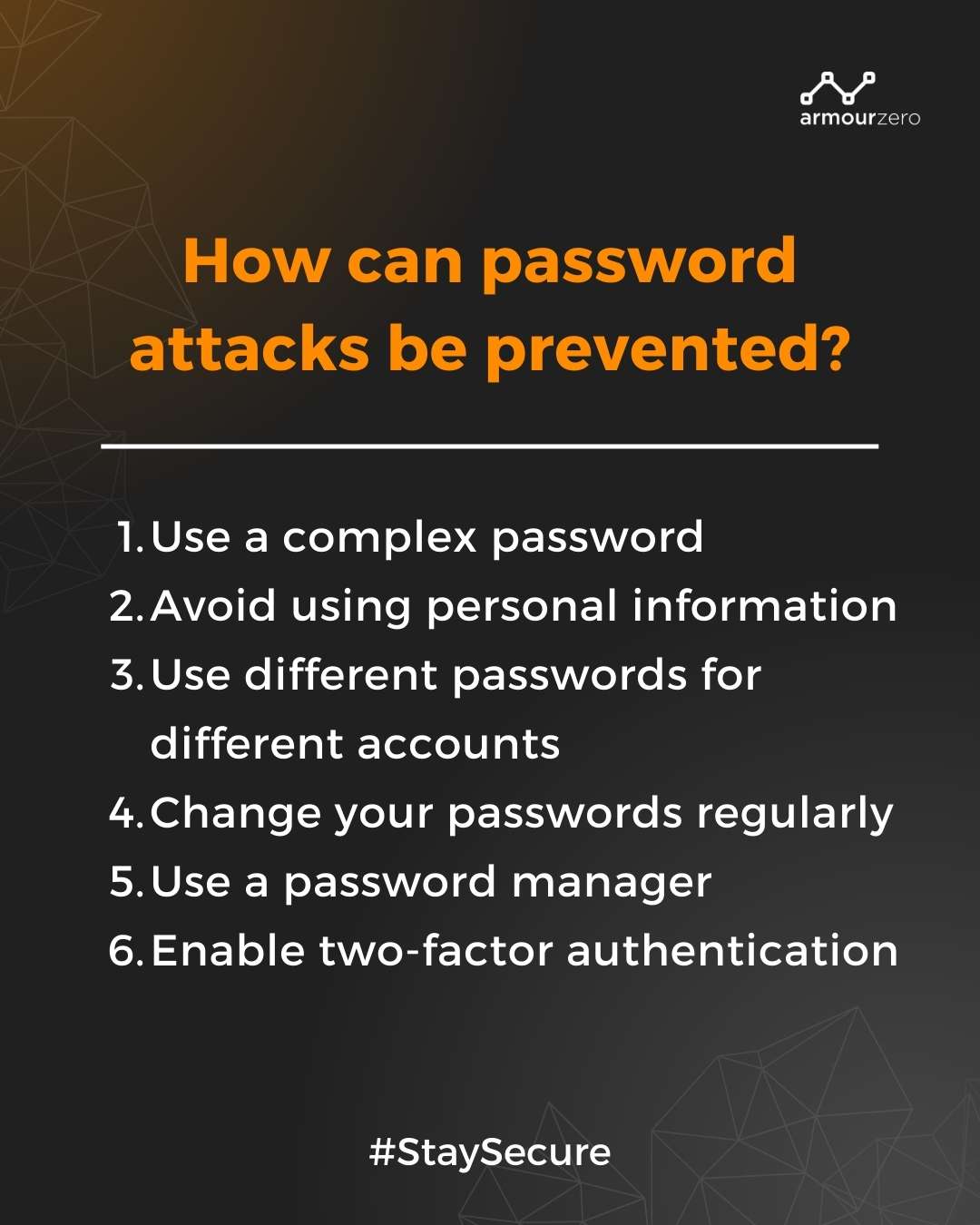World Password Day 2023:
Protect Your Online Life

Why is World Password Day celebrated?
World Password Day is an annual event held on the first Thursday in May (this year, 2023, on May 4th). It was created in 2013 to raise awareness of the importance of creating strong passwords and protecting personal and sensitive information online. In today’s digital era, passwords are the first line of defence against cyber attacks. They store our online accounts, financial information, personal data and more. However, many people still use passwords that are weak or easy to understand, making them vulnerable to hacking, identity theft, and other forms of cybercrime. Therefore, the purpose of World Password Day is to encourage people to adopt better password habits and to raise awareness of the importance of password protection.
How do passwords relate to cybersecurity?
Password leaks can be a serious cyber threat because they can give hackers access to private data that they can use in a variety of cyberattacks. Attackers can use passwords that have been leaked or stolen to gain unauthorised access to user accounts, steal personal or financial data, or spread malware and ransomware.
Here are some common cyber threats that can result from a password leak:
-
Account takeover
Leaked passwords can be used by cybercriminals to log into user accounts and perform other malicious tasks. They are able to make fraudulent purchases, send contacts, phishing emails, steal personal information, and even lock users out of their accounts.
-
Data breaches
Data breaches caused by password leaks may reveal private information like credit card numbers, Social Security numbers, and medical records. The use of this data for financial fraud, identity theft, or other illegal activities is possible.
-
Malware attacks
Cybercriminals can use leaked passwords to distribute malware or ransomware through phishing emails or other social engineering techniques. These malicious applications can encrypt files, steal sensitive data, and even take over the device once they have been installed.
-
Credential stuffing
Passwords that have been compromised may be used by attackers to try to log into multiple accounts using the same username and password combination, a practice known as credential stuffing. Attackers may be able to access other accounts if the user has used the same password on several of them.
-
Brute force attacks
By testing every possible character combination until the correct one is found, attackers use automated tools to guess passwords. Brute force attacks can be more effective against weak passwords because they are simple to guess.
-
Credential stuffing
Attackers use username and password combinations leaked from other data breaches to try to gain access to other accounts. Weak passwords are easy targets for credential stuffing attacks.
-
Phishing
Phishing is when a hacker disguised as a trusted party sends a fraudulent email hoping that you will voluntarily provide personal information. They lead you to a fake “password reset” screen from time to time. Otherwise, the link will install malicious code on your device.
-
Password spraying
Attackers use common passwords to try and gain access to accounts, such as “password” or “123456,” are commonly used. Therefore these weak passwords are vulnerable to password spraying attacks.
-
Keylogging
The keylogger is malicious software designed to track every keystroke and report it to hackers. Attackers use software or hardware to record keystrokes and steal login credentials.
-
Man-in-the-middle attacks
Man-in-the-middle (MitM) is an attack when a hacker or compromised system sits between two non-breached people or systems and decrypts information passed to each other, such as passwords. If Alice and Bob pass notes in class, but Jeremy needs to pass those notes, Jeremy has the opportunity to be an intermediary. Similarly, Equifax removed the app from the App Store and Google Play Store in 2017 because it shared sensitive data through insecure channels hackers may have used to steal customer data.
In general, weak passwords make it simpler for cybercriminals to access private data and systems without authorization, resulting in serious security breaches and potentially disastrous outcomes. Using strong passwords that combine upper- and lowercase letters, numbers, and special characters will significantly lower your risk of being the victim of a cyberattack.
How can password attacks be prevented?
It’s crucial to adhere to good password hygiene practices, such as creating strong and unique passwords, changing them frequently, and enabling two-factor authentication, to prevent cyber threats brought on by password leaks. In order to protect your password and data, consider the following tips:

1. Use a complex password
A strong password should be at least 12 characters long and include a mix of upper and lowercase letters, numbers, and symbols.
2. Avoid using personal information
Never use personal information like your name, birthdate, or address as a password. This information can be easily guessed or obtained by hackers.
3. Use different passwords for different accounts
Using the same password for multiple accounts is a major security risk. If one account is compromised, all your other accounts could be at risk.
4. Change your passwords regularly
It’s the best practice to change your passwords every few months to stay one step ahead of cybercriminals.
5. Use a password manager
Use a password manager if you have trouble remembering numerous passwords. All of your passwords can be safely stored in one location with the help of this software, which can also create secure passwords for you.
6. Enable two-factor authentication
Two-factor authentication (2FA) provides an extra layer of security by requiring a second form of verification, such as a code sent to your phone or email.
You can protect yourself and your private information online by following these easy tips. Remember that the first line of defence against cybercrime is a strong password, and even the smallest improvement in password security can have a significant impact.
So, on this World Password Day 2023, take a moment to review your password habits and make any necessary changes to ensure that you’re keeping your information safe.
If you’re looking for a Security-as-a-Service solution to protect your operating systems and third-party applications such as Microsoft Office and Adobe, ArmourZero has partnered with Automox to offer just that. What sets ArmourZero apart from resellers or distributors is that you won’t just receive a security licence, but also a 24/7 SOC to monitor and alert you of any potential threats.
With this service, you can rest assured that you’ll be protected against known vulnerabilities by controlling authorised/unauthorised applications, ensuring continuous patches, and always having up-to-date versions released by the application vendor. If you’re interested, check out our price list for ArmourZero’s Patch Management as a Service and schedule your demo.
![]()
Written by:
Fanny Fajarianti (Performance Marketing). Experienced digital marketer in the information technology and services industry.
Share this post
Related Posts

Earth Day: The Connection of Cybersecurity and Sustainability
- 22 Apr 2024
- By:Fanny Fajarianti
- Category: ArmourHacks
Uncover the link between Earth Day and Cybersecurity, promoting sustainability through data protection and environmental stewardship. Let’s secure a greener future.

What is DevSecOps? Definition & Best Practices for Tech Industries
- 18 Apr 2024
- By:Bernadetta Septarini
- Category: ArmourHacks
Learn about DevSecOps, principles, and best practices for the tech industry. Integrate security seamlessly into software development and enhance quality.

Safeguarding Your Organisation During the Hari Raya Holiday
- 09 Apr 2024
- By:Bernadetta Septarini
- Category: ArmourHacks
Protect your organisation from holiday cyberattacks during Hari Raya. Learn more about the risks and best practices for holiday security with ArmourZero.

Cyberattacks: A Growing Threat to Higher Education
- 02 Apr 2024
- By:Fanny Fajarianti
- Category: ArmourHacks
Universities hold sensitive data but face cyberattack risks in the digital age. Explore the impact of cyberattack and learn how to protect your institution.

